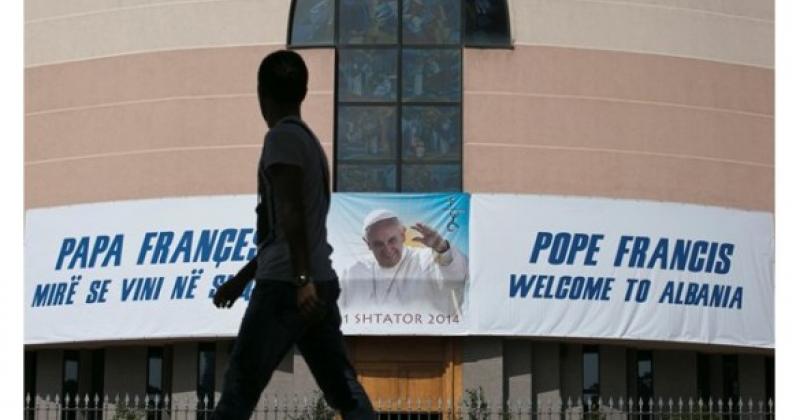As Pope Francis prepares to travel to Albania on Sunday, September 21, we shine the spotlight on this small Mediterranean nation with a painful past of occupation (starting with the Ottoman incursions in the 14th century) and communist repression.
Currently Albania, which is an official candidate for membership in the European Union, boasts a 23-year-old democracy and the peaceful coexistence of numerous ethnic and religious denominations.
And that’s is exactly the reason Pope Francis gave when asked – on his journey back from Korea in August – why he has chosen Albania as the destination for his very first Apostolic journey to a European country: “I am going to Albania” – Pope Francis said – “for two important reasons. First, because they have been able to form a government—just think of the Balkans, they have been able to form a government of national unity with Muslims, Orthodox and Catholics, with an interreligious council that helps a lot and is balanced. This is good, and harmonious. The presence of the pope wishes to say to all the peoples [of the world] that it’s possible to work together. I felt it as a real help to that noble people”.
These words of Pope Francis provided Vatican Radio’s Linda Bordoni with the starting point for a conversation with the Albanian Programme’s Father Marjan Paloka, who shines the light on the hopes and on the wounds of the nation.
Father Marjan explains that the Albanian government is made up of ministers who belong to all the different religious denominations present in the country as well as the so-called agnostics, but,he points out,“obviously they are not elected because of their religious belongings. The nation has the Constitution of a secular state”.
However he points out “this shows that religion is not a divisive factor in Albania and the Pope focuses on the fact that persons of different faiths can work together and be together”.
Father Marjan says that according to a census three years ago the Albanian population consists of 56 per cent Muslims, 15 per cent Catholics, 6 per cent Orthodox and the rest are agnostic.
The situation in fact is no so clear-cut he says - because “we have two generations which were born and raised under dictatorship when and where religion was forbidden. And it is hard to start to cultivate a religious feeling after 40 years of religious repression and oppression”.
Father Marjan says “We can say we have a naturally religious nation of people but we don’t have a strong religious community in the country”.
He speaks of a deep thirst for spirituality in his country, but right now– he points out - most of the people will be looking to the Pope as a strong moral authority, as someone who gives attention to the poor and the marginalized.
